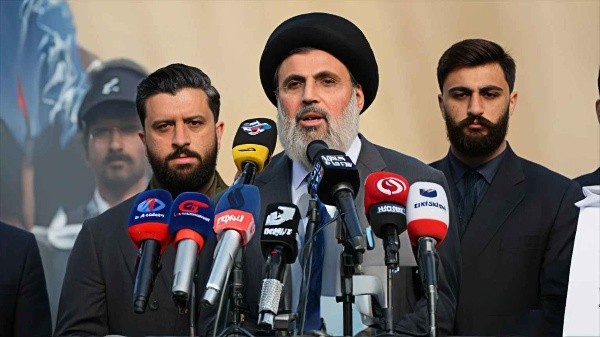Iran’s Plan to Strike Back Against the U.S.
Iran’s Military Preparations Following U.S. Attacks
Loading...

Several media outlets have claimed that Hashem Safieddine, head of the group’s Executive Council, has been appointed as the new secretary-general
Media Speculation Surrounds Leadership Changes
Hezbollah has officially refuted claims circulating in various media outlets regarding the appointment of Hashem Safieddine as the new secretary-general of the organization. This speculation arose following the recent death of Hassan Nasrallah, who had led the group for over three decades and was killed in an Israeli airstrike in Beirut.
On Sunday, reports from Al Arabiya and Al Hadath suggested that Hezbollah's Shura Council, the group’s central decision-making body, had selected Safieddine to take over the leadership role. These reports indicated that the decision was made in light of Nasrallah's death, which has been described as a significant loss for the organization.
Who is Hashem Safieddine?
Hashem Safieddine has been a prominent figure within Hezbollah, serving as the head of the Executive Council since 2001. At 60 years old, he is often regarded as the “number two” leader in the group. Notably, Safieddine is not only Nasrallah’s cousin but also the son-in-law of Qassem Soleimani, the former commander of Iran's Quds Force, who was killed in a U.S. airstrike in Iraq in 2020. His close ties to both Nasrallah and Soleimani position him as a key player within Hezbollah's hierarchy.
The New York Times reported that Israeli officials believe Safieddine could soon be announced as the new secretary-general, highlighting that he was one of the few senior leaders absent from the site of the recent Israeli strike. This absence has led to speculation about his potential elevation within the organization, as he has long been viewed as a likely successor to Nasrallah.
Hezbollah's Response to Speculation
In response to the swirling rumors, Hezbollah has taken steps to clarify the situation. The group was quoted by Al Manar, stating that the reports regarding organizational changes following Nasrallah's death are “of no importance and cannot be relied upon.” Hezbollah emphasized that any credible information regarding leadership transitions would only come from official statements, thereby attempting to quell the speculation surrounding Safieddine's potential appointment.
Impact of Recent Israeli Strikes
The backdrop of these leadership discussions is the recent escalation of violence between Hezbollah and Israel. Israeli officials have claimed that recent airstrikes have severely diminished Hezbollah's military leadership, with reports indicating that over a dozen senior figures have been killed in the past few weeks. The death of Nasrallah is viewed as a particularly devastating blow to the organization, given his pivotal role in shaping Hezbollah's identity and strategy against Israel.
Nasrallah's leadership was marked by a significant rise in Hezbollah's power and influence in Lebanon and the broader region. His death not only creates a leadership vacuum but also raises questions about the future direction of the group, especially in light of the ongoing conflict with Israel.
Conclusion
As Hezbollah navigates this period of uncertainty following the loss of its long-time leader, the organization is keen to maintain stability and continuity. While speculation about Hashem Safieddine's potential succession continues, Hezbollah's insistence on the importance of official communication underscores its desire to control the narrative during this critical time. The coming weeks will be crucial in determining the future leadership and strategic direction of Hezbollah in the face of external pressures and internal challenges.
Editor
Iran’s Military Preparations Following U.S. Attacks
Troops remain in five strategic locations, raising fears of renewed tensions and long-term occupation.
Opposition forces have taken control of the capital after a significant offensive. Here is how it unravelled.
